Well, here we are, with this nightmare of a year nearing a close. Before we dive into our proper year-end coverage, we wanted to take a moment to show some love to the best albums we didn’t manage to cover at Beats Per Minute this year. Needless to say, with so much great music, it’s impossible to get to even nearly it all, so we’ve done our best highlight some more fantastic albums (and EPs) here.
We ended up with 46 albums (Uh, Joe Biden, ladies and gents? We swear this wasn’t intentional, but hey), and have put together a Spotify playlist for your enjoyment, including each writer’s pick of tracks from every release included (aside from a handful that aren’t on streaming services). We’ve also included Bandcamp links wherever possible, so please do consider supporting the artists if you’re able!
Most importantly, read and listen up, and enjoy! Thanks for a great year, we’re looking forward to the future alongside you all. – Chase McMullen and the whole BPM team

A.G. Cook – 7G
[PC Music]
While the world continues to collapse around him, A.G. Cook‘s 2020—put modestly—can be seen as a relative success. Maybe even—dare I say— the biggest year for any recording artist? Yes, the horrid 2020, with all its vile energy and happenings, paved a path for this prolific producer to trek without caution and without a barrier to reveal all the wonderful ideas inside his imaginative mind. From lending a helping hand to Charli xcx’s incredibly infectious quarantine record to the release of his first two albums (released five weeks apart), Cook’s busy influence climaxed with the release of his colossal debut record proper.
In 7G, Cook busted the flood gates wide open, unleashing a seven-part, 49-track-long hyperpop sprawler. Very few will make it through this project without skipping a song or 20—understandably. But listening all the way through at least once—twice if you’re freaky—will floor any reservations one would have approaching a project of the immensity. Glitchy, pastoral, and wonky all at once, 7G is a world with layers, atmospheric complexities, and a sense for story that rarely hits a low point through its two-hour-long journey. The debut from the PC music founder is compelling, forward-thinking, but above all—ambitious. It’s the perfect release from a person who has helped birth some of the most otherworldly pop music this past decade. – Kyle Kohner
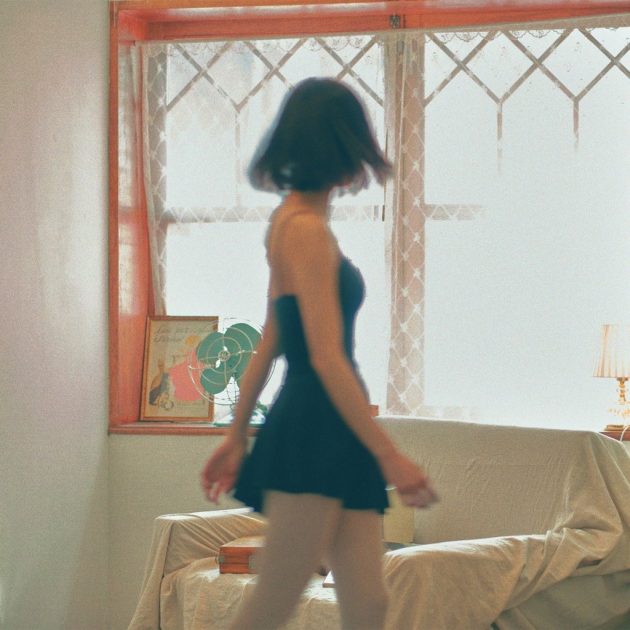
Aseul – Slow Dance
[Astro Kidz]
Arguably the leader of a new generation of Seoul kids who’ve rejected K-pop as we know it, Aseul represents the self-produced “New Seoul” DIY aesthetic to a T.
Slow Dance maintains her knack for self-produced, hushed, and ultimately beyond expressive indie pop ballads in perfect measure. It may not leap too far beyond her last (excellent) release, Asobi, but it continues to build and develop the painstakingly illuminated private world she’s created. Music for being alone, certainly music for mornings, and ultimately music to day dream to. – Chase McMullen

Baby Smoove – Im Still Perfect
[Dha Franchise]
Detroit rapper Baby Smoove has his formula down, delivering deadpan put-downs like “No cap, you’re the reason why I don’t trust bitches” in a smoky drawl that makes 21 Savage seem like Busta Rhymes in terms of energy. 2020 has actually been a little slow for him, only dropping one release compared to four in 2019. But Im Still Perfect is as good of an introduction to Smoove as you can get. His style is consistent without falling into a rut, helped immensely by his ability to transition between hilarious self-aggrandizing and reflecting on trauma. Beats from producers like Michigan Meech are another highlight, sometimes threatening to steal the show from Smoove, until the energies perfectly match each other. Baby Smoove has felt like a hip-hop’s ‘best kept secret’ for a while now – Im Still Perfect might not bring him to the top, but it should bring him closer to it. – Brody Kenny

Black Dresses – Peaceful as Hell
[Self-released]
Few records have captured the overbearing disintegration of society at large better than Black Dresses‘ Peaceful as Hell. Despite its oxymoronic title, the latest from Ada Rook and Devi McCallion is an electro-industrial beast flushed with chaotic energy that never hides its teeth. It’s everything but peaceful. For 46 minutes straight, not once do Black Dresses let off the gas pedal. Even with its brief moments of reprieve, beauty, and slight cuteness, this listening experience is thoroughly burdened with impending calamity, unnervingly lurking around every corner.
As doom-ridden as Peaceful as Hell can be, especially within the context of this past year, Black Dresses provided a sound and aesthetic that projected a future where oddball hyperpop and industrial rock work together in perfect unity. Unfortunately, just as the promise of a new decade dissipated as quickly as it came, Black Dresses stymied potential stardom by disbanding less than a month after releasing this gem of a record (due to constant harassment received by McCallion). If this truly marks the end of Black Dresses, what a way to go out. – Kyle Kohner
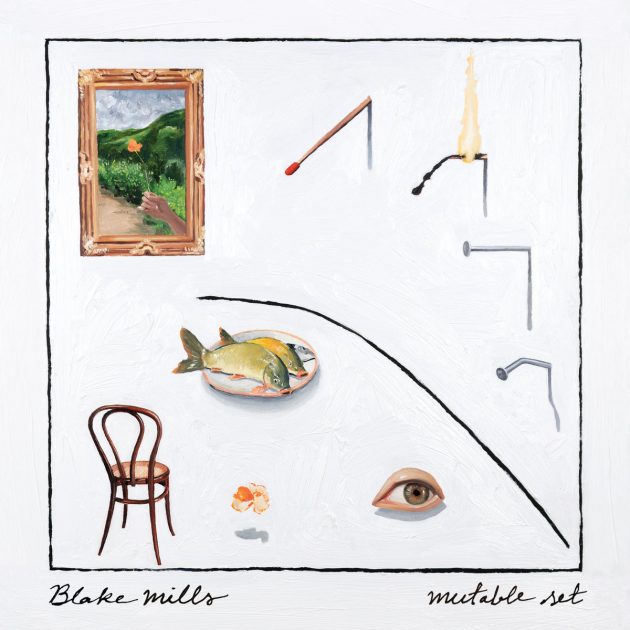
Blake Mills – Mutable Set
[New Deal / Verve]
2020 may be the year that everyone and their mom took notice of Fiona Apple – her fifth album Fetch the Bolt Cutters dominates still. It only seems appropriate to highlight one of Apple’s best collaborators who has flown under the radar for a few years now: Blake Mills. The minimalist singer-songwriter has aided a wide range of artists, whether it be in the studio or on tour, but his solo career hasn’t received the attention it deserves. That changed in 2020 with Mutable Set, arguably his best album to date. While he hasn’t slouched on production responsibilities this year (he’s responsible for a lot of Perfume Genius’ eclectic sounds these last few albums), Mills’ fourth solo record finds him harnessing his inner Jim O’Rourke by keeping things down-tempo, but rising as the occasion calls for it. It’s this methodical plotting of his music that makes songs like “Vanishing Twin” feel as invigorating as they are relaxing. – Tim Sentz
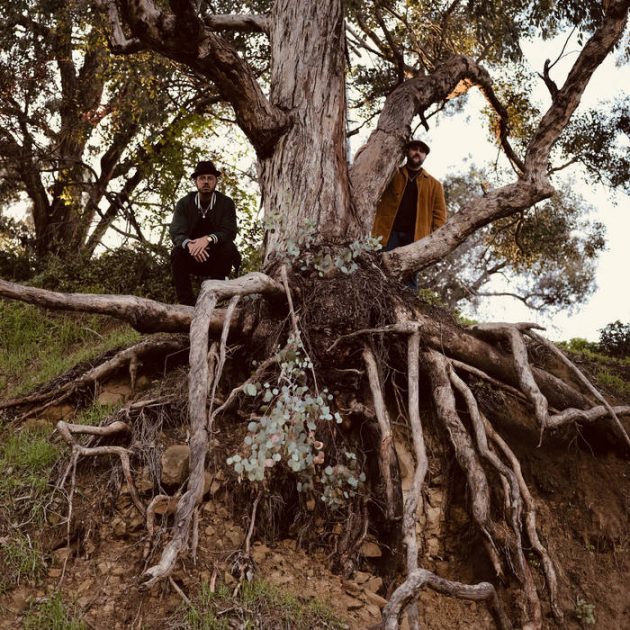
Blu & Exile – Miles
[Dirty Science]
Clocking in at 95 minutes, the double album Miles from rap tandem Blu & Exile feels like a towering behemoth that requires a longer attention span than most can boast. It’s intimidating, especially when the duo hadn’t released a truly great album since their 2007 debut Below the Heavens. True, they only put out one album in between, but Blu & Exile returned in 2020 with the follow-up fans were actually wanting. The two bounce off each other masterfully, with Exile producing the entirety of the 20-track album.Very few albums in 2020 attempt to create the cycle of fame and life appropriately, but even on extended cuts like the nine-minute centerpiece “Roots of Blue” feel relevant to the struggles everyone seemed to face this year. Their debut paved the way for so many rappers, and it’s viewed as a cult classic. Finally in 2020 we have a worthy successor, an album that feels comfortable right next to Below the Heavens. – Tim Sentz

Boldy James / Sterling Toles – Manger on McNichols
[Sector 7-G]
No other rapper can say they owned 2020 quite the way Boldy James did. Three releases, and each one showing a different side of his abilities. The Price of Tea in China might be the one most focused on, but Manger on McNichols is where it’s at for me. Utilizing the talents of experimentalist producer Sterling Toles, the duo have crafted a jazz-rap album that, while it doesn’t quite hit the level that To Pimp a Butterfly did, definitely needs to be in the conversation.
Manger on McNichols sounds like nothing else Boldy released this year. There’s string arrangements, pianos, flutes, saxophone, you name it – nothing else sounds like it, and that’s why it should be in the conversation with not just Boldy’s best albums, but best rap albums of 2020. Boldy worked with The Alchemist on Tea, so it fits more in line with his eventual signing to Griselda, but Toles takes Boldy in different directions, unpredictable ones that paint such a dark portrait of Detroit. Nevertheless, the production matches Boldy’s style perfectly, and it’s that cohesion that makes Manger one of the best of the year. – Tim Sentz
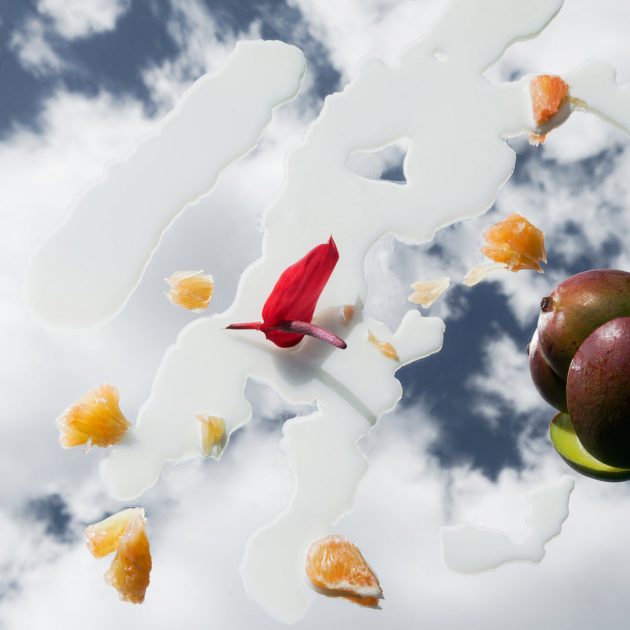
Caitlin Pasko – Greenhouse
[Whatever’s Clever]
Caitlin Pasko‘s Greenhouse is not an album to be consumed quickly. It might be a little over a half hour in length, but it takes time and patience to unfurl before you. Pasko’s words and music are considered and patient, and if you give yourself time with Greenhouse, the ache of her voice, the decay of each piano chord, and the nuance of each vowel begins to feel like it carries unbearable weight behind it.
Written during and in the wake of an emotionally abusive partnership, Greenhouse deconstructs relationships and self-identity with careful imagery and detail. On “To The Leaves” she paints a tragic everyday picture, comparing herself to a bruised piece of fruit left to rot. Over melancholic, dazed synths on “Even God” she paints a quietly accurate still of depression: “I’m stuck in death / Every little loss grows into death.” She lets some of the weight off her chest on “Horrible Person” as synths hum, trickle, and crackle to a head over and over; “You know you are a horrible person / I shouldn’t have to explain it to you / Or tell you why / You should know it already / I shouldn’t have to give you examples,” she explains. Greenhouse feels like an unloading, years of abuse, shame, and illness unpacked and left to walk away from. “Today I remembered / What it feels like to go walking,” Pasko states on “Mother”. The hardest part can be walking away, and Pasko shows that it’s not always about running. She finds her legs and takes it one step at a time. – Ray Finlayson
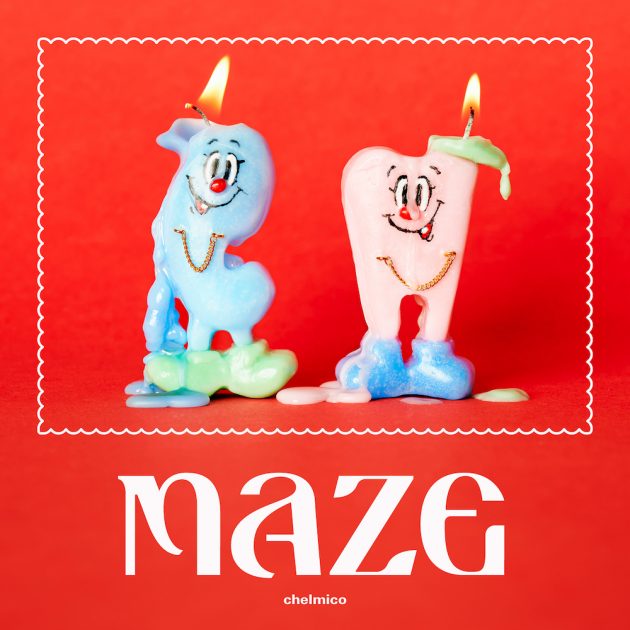
chelmico – maze
[Warner Music Japan]
If you’re a fan of anime auteur Masaaki Yuasa, you may have already heard the delirious fanfare of this album’s first song, “Easy Breezy”, commissioned for the intro to Keep Your Hands Off, Eizouken!. chelmico jump right into things on maze with Rachel Watashiga and Mamiko Suzuki’s zippy rapping over a squelching slide guitar (inspired by Slipknot…?), in a way it also works as a theme song to this album and the freewheeling energy the listener is in for.
Though the duo’s rapping is a central component to their songs, hip hop is only one of many styles that the band expertly tours. “Disco (Bad dance doesn’t matter)” is exactly the kind of song you’d want to dance badly to, and the follow-up “エネルキー” (“Energy”) is pure throwback fun (oddly more disco than the song named “Disco”). Even the straighter hip hop tracks like “Terminal 着、即 Dance” and “Limit” are bursting with eclectic production and arrangements, reflecting the album’s larger creative style. In interviews, chelmico say they shelved plans for a heavier album as the COVID-19 pandemic started, in exchange for something more upbeat, and it was a justified decision—this is some of the most fun genre-bending pop and hip hop made in years. – Josh Sand

Chiyono Ide – わたしの高校生活 (My High School Life)
[Natural Make]
Following Japanese idol pop group 3776 over the last few years compels one to make aunt-like ‘how you’ve grown!’ comments, but it’s not unearned when singer Chiyono Ide was recruited at the absurd age of twelve years old, an artistic context you don’t see often outside of these kinds of groups. 3776 has often taken on ambitious album concepts that make 70s prog bands look non-committal, but for Ide’s solo album, the concept is a down-to-earth and personal one. Here, Ide gives a four-year update on her first solo albumもうすぐ高校生活 (“High School Life Coming Soon”), even down to the cover pose.
How was Ide’s high school life? The answer is the subject of the album’s title track, an 11-minute saga (complete with video and English subtitles) wistfully recounting the moment the graduation ceremony was canceled for COVID-19 precautions (this single was released in April, how fast was this made?) and reflecting on the meaning of the four years and her identity (Translated lyrics: “‘Hardworker,’ what did I do that was so hard? I wonder what I achieved”). Her previous infectiously-charming child-like energy (she was literally a kid!) makes her wistful turn here all the more affecting. Musically, Ide is joined by master producer Akira Ishida who will happily color his synthpop with IDM, new wave, or dreamy post-rock touches as needed. His presence makes this a 3776 album in all but name, but Ishida shirks the maximalist heights of last year’s 歳時記 (Saijiki), making this a significantly easier album to casually throw on, and an excellent intro to the one of Japan’s most adventurous pop projects. – Josh Sand

Coriky – Coriky
[Dischord]
It’s time for those in denial to face facts: Fugazi are never coming back. They accomplished everything they needed to and went out in style on 2001’s incredible swan song The Argument. Since then, there’s been tiny moments of revivalism from Guy Picciotto and Ian MacKaye in various formats, the most notable being The Evens from MacKaye and his wife Amy. But news of Coriky‘s formation in 2018 raised some eyebrows, because it not only featured MacKaye, but also original Fugazi bassist Joe Lally.
The result is the closest and best thing we’ll get to a Fugazi reunion. Coriky’s debut album is everything fans of Fugazi have been waiting for, and it’s not a slight to The Evens albums – those are all great. But Coriky even sounds like a Fugazi album in several instances, and actually sounds like the next place the band would have gone after The Argument. Coming in a pivotal year politically, Coriky’s visceral 37-minute debut is precisely the fuel needed for the second coming of punk. – Tim Sentz
Listen to our track choices in the Spotify playlist.

